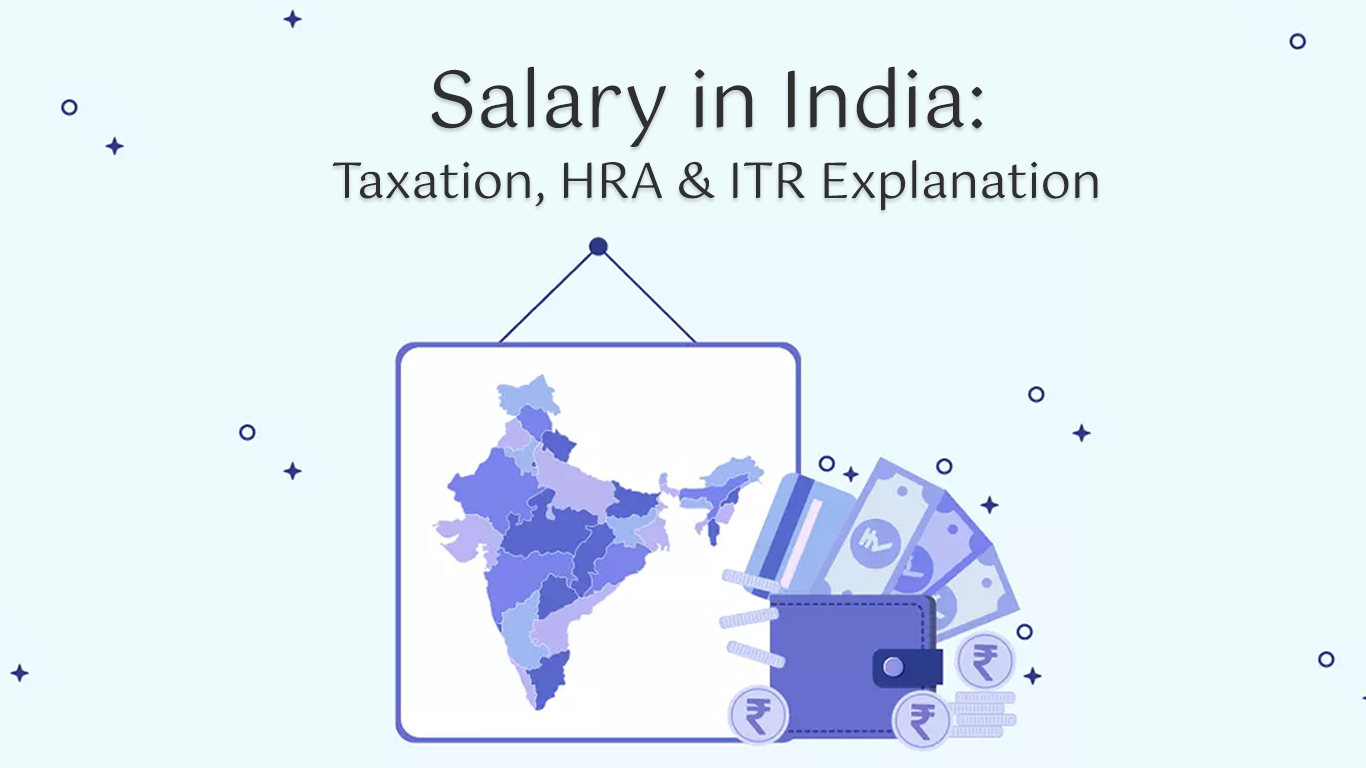
Taxation of cryptocurrency gains
With the intriguing creation of Bitcoin by pseudonymous developer Satoshi Nakamoto in 2009, the cryptocurrency market has been growing. With the introduction of crypto exchanges, it became accessible to almost anyone with a smartphone! With a lot of people in India investing in cryptocurrency, it is important to understand the tax implications of gains or losses from such investments. In this article, I’ll help you understand how cryptocurrency is taxed in India.
What is Cryptocurrency?
Cryptocurrency is a type of digital asset or currency that you can use to buy goods and services. ‘Crypto’ in cryptocurrency means implies that the transactions are highly encrypted, ensuring maximum security. Cryptocurrencies are decentralised, so, unlike traditional currencies, they are not regulated and controlled by a central body.
CoinMarketCap reports that today there are over 22,000 cryptocurrencies, with a total market capitalization of $1.1 trillion. However, it has remained fairly controversial in India due to its decentralized nature.
Is Cryptocurrency taxable?
Yes, cryptocurrency is taxable in India. In the 2022 budget, GOI introduced new rules related to the taxation of cryptocurrencies. In the 2022 budget, the tax was kept at a flat 30% on income from the transfer of digital assets like cryptocurrencies. The individual who has received any profit on cryptocurrency transactions needs to pay the tax, irrespective of whether the gain is short-term or long-term.
How is Cryptocurrency Taxed in India?
In India, cryptocurrencies are classified in the category of virtual digital assets and are subject to taxation. Here’s their taxation works-
- All the gains you make by trading cryptocurrencies are subject to tax at 30% (plus 4% cess) as per Section 115BBH of the Income Tax Act.
- If you transfer crypto assets on or after 1st July 2022 for an amount of ₹50000 or ₹10,000 in some cases, then it is subject to a TDS at 1% under Section 194S of the IT Act.
- If you are a private or commercial investor who has transferred crypto assets during a year, then you are subject to crypto tax.
- The same tax rate is applied to short-term and long-term gains and it applies to all types of incomes.
- All the earnings you make from trading, selling, or swapping cryptocurrencies are taxed at a flat 30% (plus a 4% surcharge) for both capital gain and business income.
Which Cryptocurrency Transactions Are Liable to Tax in India?
In India, the following cryptocurrency transactions are subject to tax:
- Spending cryptocurrency to purchase goods and/or services
- Exchanging cryptocurrencies for other cryptocurrencies
- Trading cryptocurrencies using Fiat currency like INR
- Receiving cryptocurrency as payment for a service
- Receiving cryptocurrency as a gift
- Cryptocurrency mining
- Drawing a salary in cryptocurrency
- Staking cryptocurrency & earning the benefits of a stake
- Receiving airdrops
What is the Tax on Crypto?
You need to pay a tax of flat 30% on your crypto profits. To calculate it, you first need to ascertain your gains from crypto which you can calculate by deducting the purchase price from the sale price. The crypto tax will be 30% of such gains from cryptocurrency.
TDS On Cryptocurrency Transactions
TDS or Tax Deducted at Source aims to tax all crypto traders & investors as and when they carry out a transaction by deducting a certain percentage at the source. So, if you are a buyer who owes a payment to the seller, you need to subtract the TDS amount, forward it to the central government, and then pay the balance amount to the seller.
In India, the TDS rate for crypto is set at 1%. from July 01, 2022. The buyer is responsible for deducting TDS at the 1% rate while making payment to the seller for the transfer of Cryptocurrency or NFT. If the transaction is taking place on an exchange, then the exchange deducts the TDS and pays the balance to the seller. While Indian exchanges automatically deduct TDS, if you are trading on a foreign exchange, you must manually deduct TDS and file your TDS returns.
Restrictions on Loss Set-Off for VDA Transactions
As per the Income Tax Act, you cannot set off of losses incurred from the transfers of Virtual Digital Assets or VDAs against income or gains derived from other VDAs. So, if you sell a cryptocurrency and incur a loss, you cannot set off this loss against a gain you made from the transfer of some other VDA.
The point to note is that the Income Tax Act treats gains and income from VDAs as taxable but provides no relief or a separate provision in the event of losses. As you can understand by now, VDAs are subject to different taxation rules than most other assets in India. This emphasizes the distinction in the treatment of these assets under the IT Act.
To Understand this, let’s take an example:
Example 1
The Income Tax Act does not allow you to offset losses incurred from the transfers of VDAs against income or gains derived from other VDAs. So, for example, if you sell Bitcoin and have an INR 1,000 gain in some transactions but you also have losses in some Shiba Inu transactions, then you cannot offset this loss against the gain you made from transferring Bitcoin. You will have to pay tax on all the profit you make from your crypto transactions.
Example 2
The Income Tax Act also does not allow you to offset losses incurred from the transfers of a VDA against income or gains derived from the same VDA. So, for example, if you buy and sell Bitcoin with gains in some transactions and losses in the rest, then you cannot offset the losses you made against the gains. You will have to pay tax on all the profit you make from your Bitcoin transactions.
Tax on Mining Cryptocurrencies
All the income you earn by mining cryptocurrency is taxed at a flat rate of 30% based on the fair market value of the cryptocurrency at the time of mining. Please note that there is no provision for deductions related to expenses you incur in mining, like electricity and hardware costs.
Any profit you make from the sale, swap, or expenditure of the mined digital assets will attract capital gains tax. You cannot deduct mining expenses to reduce the taxable gain associated with the sale or disposal of the mined cryptocurrency. This is known as the zero-cost basis of calculating capital gains.
Tax on Airdrops
Airdrop is the process of distributing cryptocurrency tokens directly to specific wallet addresses, usually for free. Airdrops help increase awareness and liquidity of the token in the early stages of a new currency. The taxation rate for airdrops is 30% if the amount exceeds INR 50,000. Such airdrops are taxable under the head ‘Income from other sources’.
If you are receiving cryptocurrency, airdrops will be taxed on the value determined as per Rule 11UA, that is, at the fair market value of the tokens as on the date of receipt on exchanges or DEXes. Tax will be levied at 30% on such value. If you sell, swap, or spend the cryptocurrency later, then you will have to pay a 30% tax on the gains made.
Tax on NFTs
Today in 2024, NFTs are categorised as Virtual Digital Assets (VDAs) and are subject to taxation. So, if you purchase an NFT and subsequently generate profits from its sale, you will have to pay tax on such profits. Such tax liability may also include a surcharge and a 4% cess apart from the base tax amount.
Tax on DeFi Transactions
DeFi or decentralized finance uses emerging technology to remove third parties and centralised institutions from financial transactions. DeFi has components like cryptocurrencies, blockchain technology, and software that allow people to transact financially with each other.
DeFi taxes include a wide range of different transactions within the decentralised finance ecosystem. These transactions include activities such as yield farming, crypto mining, crypto lending, and borrowing, among others. There are different taxation rules and regulations for all these activities.
So, you must consider the tax implications of engaging in various DeFi activities, including mining and selling assets. Make sure to fulfil your tax obligations and comply with the applicable regulations.
Tax on Crypto Gifts & Donations
Any virtual assets transferred as gifts will also be taxed. In this case, if you receive crypto assets exceeding INR 50,000 in value as a gift, then you are liable to pay income tax on such gift at a flat rate of 30% (plus surcharge and cess). This applies to people gifting virtual assets such as cryptocurrencies or NFTs to friends and family in India.
A Summary of How Crypto is Taxed in India
|
Tax payable on |
Details of tax payable |
|
Crypto to INR |
Selling: You need to pay 30% tax on selling any crypto asset with a profit margin. Buying: There is no tax when buying crypto assets with INR |
|
Crypto to Crypto |
Selling: You will have to pay 30% crypto tax when trading crypto. Exchanging: While exchanging, a similar 30% tax is also applied. |
|
Crypto Gifts |
Receiving crypto assets as gifts that exceed INR 50,000 are eligible for a 30% crypto tax. |
|
Crypto Airdrops |
As airdrops categorise under gifts, it is taxable at 30% if the amount exceeds INR 50,000. |
|
DeFi Income |
Selling: You may be liable for a 30% tax on any profits if you plan on selling, swapping, or spending the received tokens later. Buying: Earning new tokens is taxed upon receipt at your Individual Tax Rate. |
|
HODLing |
Since HODLing involves holding on to your crypto for long periods, no buying or selling is taking place while holding onto your crypto assets and there is no tax on the same. |
|
Wallet Transfers |
No crypto tax is levied while transferring crypto assets from one wallet to another. |
Frequently Asked Questions (FAQ)
Non-fungible tokens or NFTs are cryptographic assets on the blockchain that include unique identification codes and metadata that identify them from one another. This enables ownership of unique digital assets and their transfer thereof.
While NFT is a token on blockchain that enables ownership of a unique digital asset, cryptocurrency is functionally a token that is created on a blockchain to signify a unit of value. NFTs are essentially a type of digital collectable item, much like art. Cryptocurrency can also be collected, though not as a collectable, but rather as a form of payment.
Not paying taxes on cryptocurrency will result in penalties that can range from fines to even imprisonment for up to 7 years.
No deductions are allowed on gains from crypto except for the cost of acquiring digital assets. This means that as a taxpayer, you cannot claim deductions or exemptions on the profit earned from the purchase and sale of cryptocurrencies.
When you are filling in your income tax return, you can check the 'Schedule VDA' section in ITR-2 or ITR-3 to report your crypto income in your tax filing. If you need help with filing your income tax then reach out to us and our team of experts will make the process a breeze for you!

.jpg)
.jpg)


.jpg)